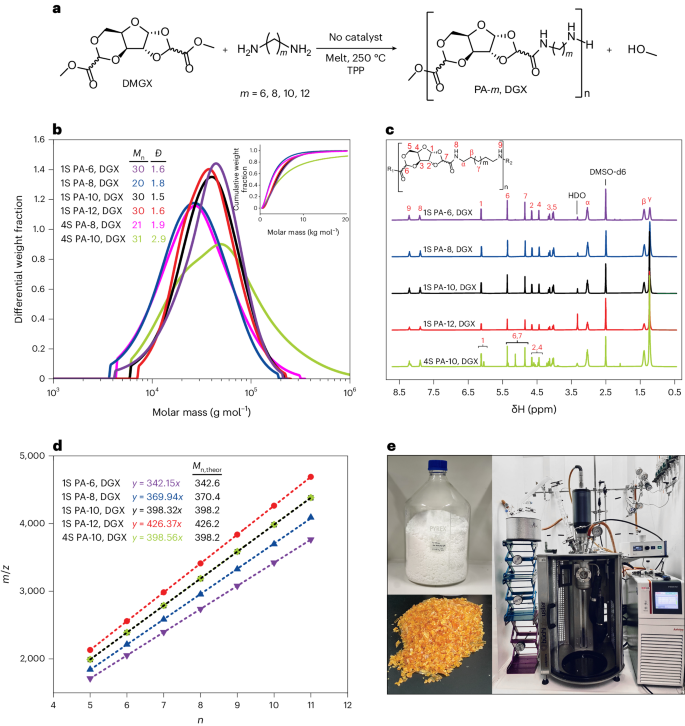2024-03-18 スイス連邦工科大学ローザンヌ校(EPFL)
<関連情報>
- https://actu.epfl.ch/news/sustainable-plastics-from-agricultural-waste/
- https://www.nature.com/articles/s41893-024-01298-7
持続可能な炭水化物をコアにした高性能ポリアミド Performance polyamides built on a sustainable carbohydrate core
Lorenz P. Manker,Maxime A. Hedou,Clement Broggi,Marie J. Jones,Kristoffer Kortsen,Kalaiyarasi Puvanenthiran,Yildiz Kupper,Holger Frauenrath,François Marechal,Veronique Michaud,Roger Marti,Michael P. Shaver & Jeremy S. Luterbacher
Nature Sustainability Published:13 March 2024
DOI:https://doi.org/10.1038/s41893-024-01298-7

Abstract
Sustainably producing plastics with performance properties across a variety of materials chemistries is a major challenge—especially considering that most performance materials use aromatic precursors that are still difficult to source sustainably. Here we demonstrate catalyst-free, melt polymerization of dimethyl glyoxylate xylose, a stabilized carbohydrate that can be synthesized from agricultural waste with 97% atom efficiency, into amorphous polyamides with performances comparable to fossil-based semi-aromatic alternatives. Despite the presence of a carbohydrate core, these materials retain their thermomechanical properties through multiple rounds of high-shear mechanical recycling and could be chemically recycled. Techno-economic and life-cycle analyses suggest selling prices close to those of nylon 66 with a reduction of global warming potential of up to 75%. This work illustrates the versatility of a carbohydrate moiety to impart performance that can compete with that of semi-aromatic polymers across two important materials chemistries.


